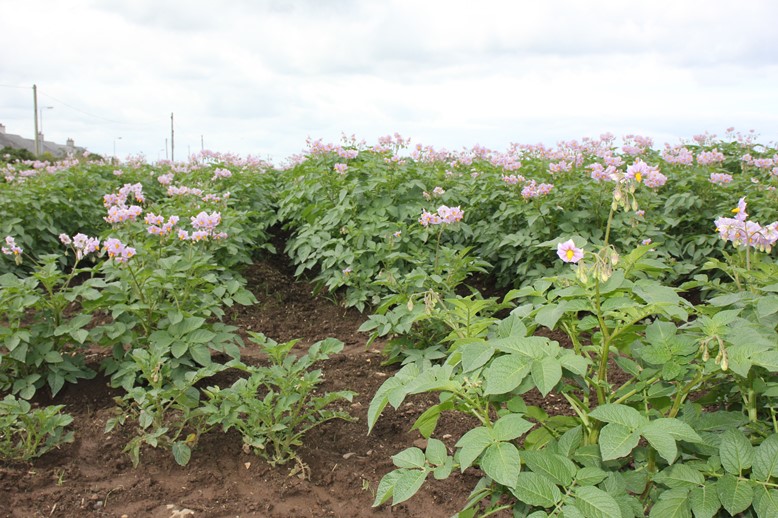Major risks line up against the potato crop
25 October 2019The potato sector is amongst those hardest hit by pending pesticide withdrawals and this will make husbandry of the crop increasingly difficult.
Of particular concern is the withdrawal of diquat in February 2020. This is currently used to ‘burn off’ and desiccate potatoes and it will have a significant impact, especially in the Scottish seed crop and particularly with softer-skinned European varieties that are being grown in greater quantities in Scotland.
Alternatives such as flailing and other desiccants are only around 60% as effective as diquat in burning down crops. There is an increased risk of blackleg with flailing, which is a concern in these scenarios and would lead to yield and quality withdrawals. It might also impact on the marketability of the Scottish crop.
Nematode problems have been on the rise anyway and the nematicides ethoprophos and oxamyl, which are used for the management of Potato Cyst Nematode (PCN) and Free-Living Nematodes (FLN) are currently both on yearly renewals in the UK. The former, especially, is at a high risk of withdrawal while the latter is at a medium risk of withdrawal.
The introduction of a new nematicide active substance in 2018 – fluopyram – has provided an alternative option for PCN control, although the control of FLN with this active has not been proven in the Scottish situation and is not on the product label.
The potential withdrawal of mancozeb will put pressure on other active substances for potato blight management and increase the risk of fungicide resistance in remaining actives. This all means that the cost of production will increase through the use of more expensive products to maintain yields, and this is estimated to have an impact of £0.66M on the total value of output of Scottish potato crops.
Virus management in Scottish seed potatoes is reliant on non-pyrethroid active substances due to the main virus vector (peach-potato aphid) being resistant to pyrethroid insecticides. After 2022 there will potentially be just three active substances effective against this aphid. This will restrict the number of aphicide applications to a maximum of eight in total. This poses a risk of increased virus levels in the Scottish seed potato crop which would then have a significant impact on seed health and seed exports – one of Scotland’s most lucrative outlets fro the crop.
The withdrawal of key herbicides in potatoes such as linuron (already withdrawn) and potential withdrawal of metribuzin (15% of the Scottish Total Value of Output of £214.7M – £32.21M) in January 2022 would have left a significant gap in weed management options in Scottish potatoes, especially with other herbicides also at risk or being withdrawn such as diquat, glyphosate and pendimethalin.
However, in March 2019 a new active substance, aclonifen, was granted approval for use on potatoes and will help to mitigate the withdrawal when metribuzin and other herbicides are unavailable.
Whatever happens, though, there will be added costs attached and growers will have to keep their management ‘on the ball’ to try to mitigate against this.
Andy Evans and Fiona Burnett SRUC, for the Farm Advisory Service.
Sign up to the FAS newsletter
Receive updates on news, events and publications from Scotland’s Farm Advisory Service

